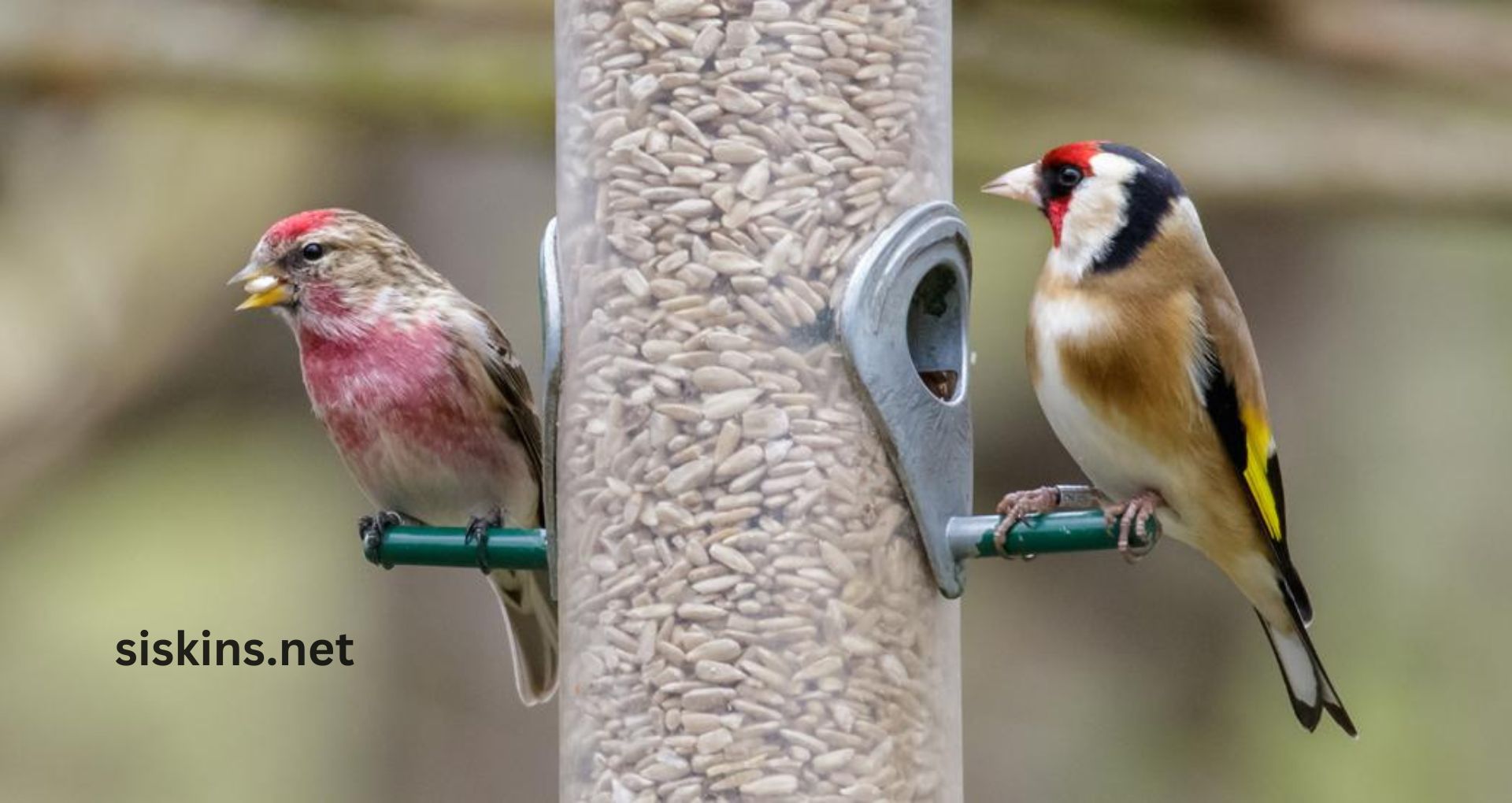Feeding small birds, especially finches, can be one of the best parts of backyard birdwatching. To attract and keep these charming little birds around, it’s important to give them the right birdseed that meets their nutritional needs, energy levels, and tiny beak size.
Millet for Finches and Other Small Birds
Millet is a favorite among small birds, especially finches. This tiny, round seed is soft enough for their beaks to crack open and packed with essential nutrients. You can find millet in white, red, and golden varieties, and it’s a great source of carbohydrates to help birds stay energetic.

Many seed mixes made for finches include millet, but you can also buy it on its own. Spray millet is a popular choice because finches can easily cling to it while they feed. Plus, millet is affordable, easy to digest, and attracts other small birds like sparrows and wrens.
Nyjer Seed: A Finch Favorite
Nyjer seed, or thistle seed, is another excellent option for finches. These tiny black seeds are rich in oil and provide the extra energy birds need, especially during the colder months. Since Nyjer seed is a bit pricier, it requires special feeders with small ports to prevent waste.

Kaytee Wild Bird Finch Station 2 Soft Mesh Sock Feeder
Kaytee Wild Bird Finch Station with two soft mesh sock feeders, perfect for attracting finches and other small birds to your garden.
Because of its popularity and high nutritional value, Nyjer seed is often a key ingredient in mixes designed for finches. You can usually find it in bulk at garden centers and online, making it easier to keep a steady supply on hand.
Sunflower Chips: Perfect for Tiny Beaks
Whole sunflower seeds are often too big for small birds, but sunflower chips are just right. These little pieces are easy to eat and full of fats and proteins. Finches love sunflower chips for their mild flavor, making them a popular choice for year-round feeding.
One great thing about sunflower chips is that they’re mess-free since they don’t have the hulls found on whole sunflower seeds. This means less clean-up for you! Adding sunflower chips to your feeder can attract a variety of small birds, from chickadees to titmice.
Canary Seed for Health and Energy

Canary seed is a tiny, nutritious seed commonly found in finch and canary mixes. It’s high in protein, which helps balance out other seeds in the mix. Soft and easy for small birds to digest, canary seed is a popular choice in finch-specific blends. Including it in your feeder mix will not only attract finches but also other small birds looking for a quick protein boost.
Blends vs. Single Seeds
Many bird lovers debate whether to use seed blends or single seeds for finches. Seed blends offer a mix of textures and flavors, so finches can pick what they like best. These blends usually include millet, Nyjer seed, sunflower chips, and canary seed, giving birds a balanced diet. However, blends can also attract larger birds that might crowd out the smaller finches.

Wagner’s 62051 Nyjer Seed Wild Bird Food
Wagner’s 62051 Nyjer Seed Wild Bird Food, a high-quality seed blend to attract finches and other wild birds for a vibrant backyard experience.
Single-seed options like pure Nyjer or millet let you cater specifically to finches. This can be helpful if you want to keep out larger birds that might not be a good fit for your finch visitors.
Seasonal Birdseed Recommendations
Finches have different seed needs depending on the season. In the summer, lightweight seeds like millet and sunflower chips help keep their energy up without weighing them down. In winter, it’s best to offer oil-rich seeds like Nyjer and canary seed, which provide extra calories to help small birds stay warm.
Most pet stores sell year-round blends that combine these seeds, perfect for birdwatchers who don’t want to change their offerings often but still want to ensure finches have a balanced diet.
Essential Nutrients for Finches

To stay healthy, small birds like finches need specific nutrients. The best birdseed for them is not just tasty but also nutritious. Proteins and fats are key for muscle maintenance and energy. Nyjer seed and sunflower chips are both rich in oils, which help keep their feathers shiny and support their high metabolism. Some seeds are even fortified with extra vitamins, which can be helpful if you notice any deficiencies or if the birds rely heavily on your feeders during certain seasons.

Kaytee Wild Bird Finch Food Blend
Kaytee Wild Bird Finch Food Blend, a nutritious mix of seeds designed to attract and nourish finches and other wild birds in your yard.
Feeding and Placement Tips
To make sure finches have a safe and accessible feeding area, use small bird-specific feeders with narrow ports to keep larger birds out. Position your feeder near shrubs or plants for cover from predators, and avoid placing feeders in open areas where birds might feel exposed. If squirrels or larger birds become a problem, consider getting feeders with cages around the ports, so only small birds can access the seeds.
Also Read: What are the best feeders to attract finches?
Common Problems with Birdseed
One common issue with birdseed is spoilage, especially in humid or rainy climates. To prevent mold, store your birdseed in a cool, dry place, and don’t overfill feeders. Check your feeders regularly for signs of mold or pests. If you’re using Nyjer seed, which can spoil quickly in humid conditions, try putting out smaller amounts and refreshing the feeder every few days.

